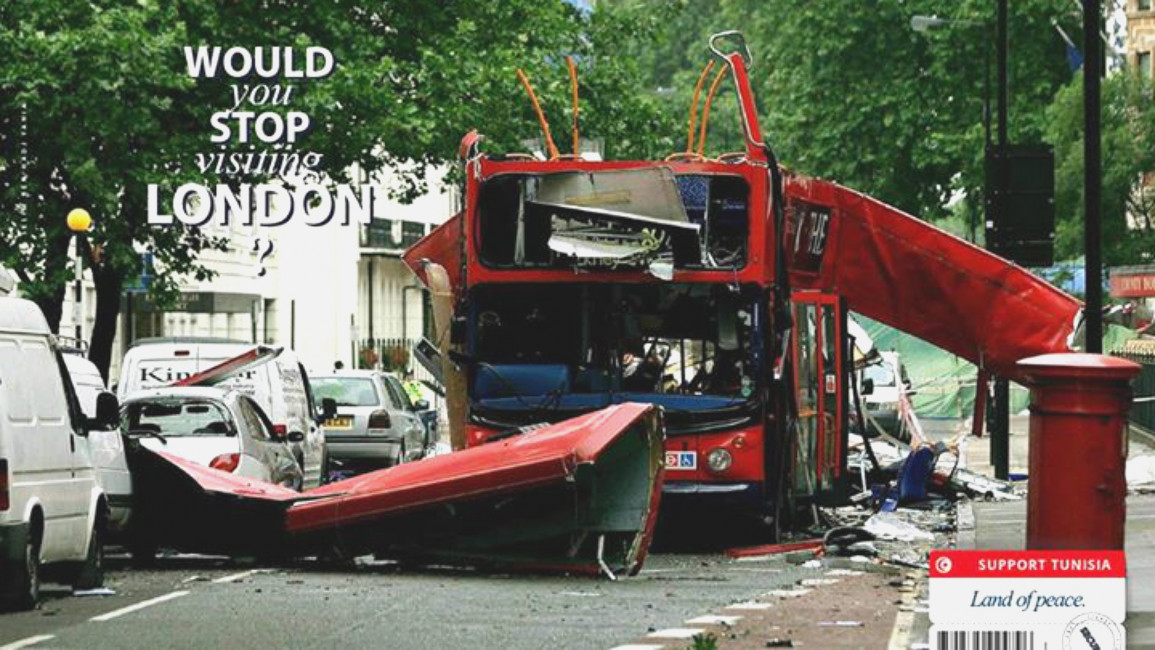Tunisia campaign urges tourists not to abandon country
A social media campaign, launched by a Tunisian communications firm days after the Sousse beach massacre, is urging tourists not to abandon Tunisia as the country declares a state of emergency.
The campaign posted on Facebook features images of destruction from the 2005 London bombings, the 9/11 attack on the World Trade Centre in New York and the Charlie Hebdo massacre in Paris earlier this year, with the caption "would you stop visiting".
A line at the bottom reads, "Support Tunisia, land of peace".
 |
|
| 9/11 attack on the World Trade Centre, New York |
 |
|
| Charlie Hebdo massacre, Paris |
Selim Ben Hadj Yahia posted the images in the wake of "the shock and sadness" of the Sousse attack, saying that he hoped they spoke to "Tunisia's friends around the world".
Tunisian President Beji Caid Essebsi on Saturday declared a state of emergency following the massacre claimed by the Islamic State group.
Tunisian authorities identified the attacker as 24-year-old Master's student, Seifeddine Rezgui, saying he killed 38 people, majority of them British, as well as German, Irish, Belgian and Portuguese victims, and sent thousands of tourists fleeing to airports.
“I wanted to remind people of two obvious things - you should come back to Tunisia, it’s not a war zone and we are a land of peace and need your support” Yahia told BuzzFeed France.
Although many have praised the campaign, some believe the attack in Sousse was different to those mentioned in the campaign as it targeted tourists.
The beach shooting was the second such rampage in three months, after another attack at the National Bardo Museum in Tunis on March 18 that killed 21 tourists and a policeman.
Tunisia had already stepped up security after the museum attack and announced in the wake of the beach killings that it would deploy armed guards on beaches and close 80 mosques suspected of fanning "Islamist extremism".
These attacks have dealt a heavy blow to the tourism sector which contributes between seven and eight percent of Tunisia's GDP.
The sector accounts for 400,000 jobs, directly and indirectly, and is a key source of foreign revenue for a country where the local currency, the dinar, is non-convertible.
The economic impact of the beach bloodbath, on top of the upheaval following the overthrow of longtime secular president Zine El Abidine Ben Ali's in a 2011 revolution, is likely to exceed half a billion dollars for 2015, according to Tourism Minister Selma Elloumi Rekik.



